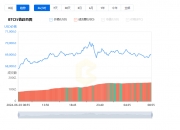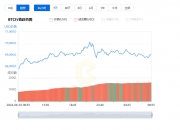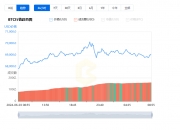跨境電子商務(Cross-border Electronic Commerce)
Cross-border electronic commerce
跨境電子商務是指分屬不同關境的交易主體,通過電子商務平臺達成交易、進行支付結算,並通過跨境物流送達商品、完成交易的一種國際商業活動。
Cross-border electronics business refers to trading bodies with different affiliations .
跨境電子商務是基於網路發展起來的,網路空間相對於物理空間來說是一個新空間,是一個由網址和密碼組成的虛擬但客觀存在的世界。網路空間獨特的價值標準和行為模式深刻地影響著跨境電子商務,使其不同於傳統的交易方式而呈現出自己的特點。
Cross-border electronic commerce is based on the development of the Internet, which is a new space for physical space, a virtual but visible world made up of URLs and passwords. Internet space unique values and mode of profoundly affecting cross-border electronic commerce > > 跨國電子商務具有如下特征(基於網路空間的分析):
International electronic commerce has the following characteristics (based on analysis in Internet space): (一)全球性(Global Forum)
(i) Global Forum 網路是一個沒有邊界的媒介體,具有全球性和非中心化的特征。依附於網路發生的跨境電子商務也因此具有了全球性和非中心化的特性。電子商務與傳統的交易方式相比,其一個重要特點在於電子商務是一種無邊界交易,喪失了傳統交易所具有的地理因素。互聯網用戶不需要考慮跨越國界就可以把產品尤其是高附加值產品和服務提交到市場。網路的全球性特征帶來的積極影響是信息的最大程度的共用,消極影響是用戶必須面臨因文化、政治和法律的不同而產生的風險。任何人只要具備了一定的技術手段,在任何時候、任何地方都可以讓信息進入網路,相互聯繫進行交易。美國財政部在其財政報告中指出,對基於全球化的網路建立起來的電子商務活動進行課稅是困難重重的,因為:電子商務是基於虛擬的電腦空間展開的,喪失了傳統交易方式下的地理因素;電子商務中的製造商容易隱匿其住所而消費者對製造商的住所是漠不關心的。比如,一家很小的愛爾蘭線上公司,通過一個可供世界各地的消費者點擊觀看的網頁,就可以通過互聯網銷售其產品和服務,只要消費者接入了互聯網。很難界定這一交易究竟是在哪個國家內發生的。
The Internet is a non-bound medium with global and non-centralized features. A major feature of cross-border e-business associated with the Internet is also global and non-centralized. compared with traditional trading methods. A significant feature of e-business is a cross-border trade 這種遠程交易的發展,給稅收當局製造了許多困難。稅收權力只能嚴格的在一國範圍內實施,網路的這種特性為稅務機關對超越一國的線上交易行使稅收管轄權帶來了困難。而且互聯網有時扮演了代理中介的角色。在傳統交易模式下往往需要一個有形的銷售網點的存在,例如,通過書店將書賣給讀者,而線上書店可以代替書店這個銷售網點直接完成整個交易。而問題是,稅務當局往往要依靠這些銷售網點獲取稅收所需要的基本信息,代扣代繳所得稅等。沒有這些銷售網點的存在稅收權力的行使也會發生困難。
can only be strictly applied within a country. tax authority can only create many difficulties for tax authorities. (二)無形性(Intangible)
(ii) Intangile 網路的發展使數字化產品和服務的傳輸盛行。而數字化傳輸是通過不同類型的媒介,例如數據、聲音和圖像在全球化網路環境中集中而進行的,這些媒介在網路中是以電腦數據代碼的形式出現的,因而是無形的。以一個e-mail 信息的傳輸為例,這一信息首先要被伺服器分解為數以百萬計的數據包,然後按照ICP/IP 協議通過不同的網路路徑傳輸到一個目的地伺服器並重新組織轉發給接收人,整個過程都是在網路中瞬間完成的。電子商務是數字化傳輸活動的一種特殊形式,其無形性的特性使得稅務機關很難控制和檢查銷售商的交易活動,稅務機關面對的交易記錄都是體現為數據代碼的形式,使得稅務核查員無法準確地計算銷售所得和利潤所得,從而給稅收帶來困難。
The development of the Internet has led to the spread of digital products and services. Digital transmission is carried out through different types of media, such as data, sound and images, which appear on the Internet in the form of computer data codes and are therefore invisible. Using an e-mail message as an example, this information is divided into millions of message =Ahref="https://wiki.mbalib.com/ICP's"title ICP's 數字化產品和服務基於數字傳輸活動的特性也必然具有無形性,傳統交易以實物交易為主,而在電子商務中,無形產品卻可以替代實物成為交易的對象。以書籍為例,傳統的紙質書籍,其排版、印刷、銷售和購買被看作是產品的生產、銷售。然而在電子商務交易中,消費者只要購買網上的數據權便可以使用書中的知識和信息。而如何界定該交易的性質、如何監督、如何徵稅等一系列的問題卻給稅務和法律部門帶來了新的課題。
The digitalized product and service-based properties of the digital transfer activity are also necessarily non-morphological, while in electronic commerce can replace (三)匿名性(Anonymous)
(iii) Anonymous 由於跨境電子商務的非中心化和全球性的特性,因此很難識別電子商務用戶的身份和其所處的地理位置。線上交易的消費者往往不顯示自己的真實身份和自己的地理位置,重要的是這絲毫不影響交易的進行,網路的匿名性也允許消費者這樣做。在虛擬社會裡,隱匿身份的便利迅即導致自由與責任的不對稱。人們在這裡可以享受最大的自由,卻只承擔最小的責任,甚至乾脆逃避責任。這顯然給稅務機關製造了麻煩,稅務機關無法查明應當納稅的線上交易人的身份和地理位置,也就無法獲知納稅人的交易情況和應納稅額,更不要說去審計核實。該部分交易和納稅人在稅務機關的視野中隱身了,這對稅務機關是致命的。以eBay為例,eBay是美國的一家網上拍賣公司,允許個人和商家拍賣任何物品,到目前為止eBay 已經擁有3000 萬用戶,每天拍賣數以萬計的物品,總計營業額超過50 億美元。但是eBay 的大多數用戶都沒有準確地向稅務機關報告他們的所得,存在大量的逃稅現象,因為他們知道由於網路的匿名性,美國國內收入服務處(IRS)沒有辦法識別他們。
The decentralisation and global character of cross-border electronic commerce makes it difficult to identify the identity and geographical location of the commercial users of electronic commerce, where people can enjoy the greatest freedom, but only the smallest 電子商務交易的匿名性導致了逃避稅現象的惡化,網路的發展,降低了避稅成本,使電子商務避稅更輕鬆易行。電子商務交易的匿名性使得應納稅人利用避稅地聯機金融機構規避稅收監管成為可能。電子貨幣的廣泛使用,以及國際互聯網所提供的某些避稅地聯機銀行對客戶的“完全稅收保護”,使納稅人可將其源於世界各國的投資所得直接匯入避稅地聯機銀行,規避了應納所得稅。美國國內收入服務處(IRS)在其規模最大的一次審計調查中發現大量的居民納稅人通過離岸避稅地的金融機構隱藏了大量的應稅收入。而美國政府估計大約三萬億美元的資金因受避稅地聯機銀行的“完全稅收保護”而被藏匿在避稅地。
信函、電報、傳真等,在信息的發送與接收間,存在著長短不同的時間差。而電子商務中的信息交流,無論實際時空距離遠近,一方發送信息與另一方接收信息幾乎是同時的,就如同生活中面對面交談。某些數字化產品(如音像製品、軟體等)的交易,還可以即時清結,訂貨、付款、交貨都可以在瞬間完成。
For the Internet, the speed of transmission and geographical distance are irrelevant. Traditional modes of trading, such as , , 電子商務交易的即時性提高了人們交往和交易的效率,免去了傳統交易中的中介環節,但也隱藏了法律危機。在稅收領域表現為:電子商務交易的即時性往往會導致交易活動的隨意性,電子商務主體的交易活動可能隨時開始、隨時終止、隨時變動,這就使得稅務機關難以掌握交易雙方的具體交易情況,不僅使得稅收的源泉扣繳的控管手段失靈,而且客觀上促成了納稅人不遵從稅法的隨意性,加之稅收領域現代化徵管技術的嚴重滯後作用,都使依法治稅變得蒼白無力。
The instantity of e-business transactions has increased people's interactions and transactions , excluding intermediaries in traditional trades, but also concealing legal risks. In the tax domain, e-business transactions tend to be spontaneous: e-business transactions tend to lead to transactional activity; e-business trading activities may start at any time, end at any time, and change at any time. This has caused tax machines to have access to the trading side's physical dealings of 8%E7%Bile `Bre"" (五)無紙化(Paperless)
(v) Paperless (Paperless) 電子商務主要採取無紙化操作的方式,這是以電子商務形式進行交易的主要特征。在電子商務中,電子電腦通訊記錄取代了一系列的紙面交易文件。用戶發送或接收電子信息由於電子信息,以比特的形式存在和傳送,整個信息發送和接收過程實現了無紙化。無紙化帶來的積極影響是使信息傳遞擺脫了紙張的限制,但由於傳統法律的許多規範是以規範“有紙交易”為出發點的,因此,無紙化帶來了一定程度上法律的混亂。
Electronic commerce mainly uses paperless operations, which are the main features of transactions in electronic commerce. In electronic commerce, electronic computer communication records replace a series of paper-based transaction documents. Users send or receive electronic information from electronic sources, which exists and transmits it in bit form, and the entire process of sending and receiving information is paperless. The important impact of paperless commerce is that has been removed from paper-based restrictions, but many of the rules of conventional law have been based on the rule of “paper-trading'. 電子商務以數字合同、數字時間截取了傳統貿易中的書面合同、結算票據,削弱了稅務當局獲取跨國納稅人經營狀況和財務信息的能力,且電子商務所採用的其他保密措施也將增加稅務機關掌握納稅人財務信息的難度。在某些交易無據可查的情形下,跨國納稅人的申報額將會大大降低,應納稅所得額和所徵稅款都將少於實際所達到的數量,從而引起徵稅國國際稅收流失。例如,世界各國普遍開徵的傳統稅種之一的印花稅,其課稅對象是交易各方提供的書面憑證,課稅環節為各種法律合同、憑證的書立或做成,而在網路交易無紙化的情況下,物質形態的合同、憑證形式已不復存在,因而印花稅的合同、憑證貼花(即完成印花稅的繳納行為)便無從下手。
, accounting for (六)快速演進(Rapidly Evolving)
(vi) Rapid Evolution 互聯網是一個新生事物,現階段它尚處在幼年時期網路設施和相應的軟體協議的未來發展具有很大的不確定性。但稅法制定者必須考慮的問題是網路,象其他的新生兒一樣,必將以前所未有的速度和無法預知的方式不斷演進。基於互聯網的電子商務活動也處在瞬息萬變的過程中,短短的幾十年中電子交易經歷了從EDI到電子商務零售業的興起的過程,而數字化產品和服務更是花樣出新,不斷的改變著人類的生活。
The Internet is a new thing, and the future development of the software agreement that has been implemented and responded to in early childhood is uncertain /a. But the issue that tax lawmakers have to consider is the Internet, which, like other newborns, will continue to evolve at an unprecedented pace and in an unpredictable manner. 而一般情況下,各國為維護社會的穩定,都會註意保持法律的持續性與穩定性,稅收法律也不例外。這就會引起網路的超速發展與稅收法律規範相對滯後的矛盾。如何將分秒都處在發展與變化中的網路交易納入稅法的規範,是稅收領域的一個難題。網路的發展不斷給稅務機關帶來新的挑戰,稅務政策的制定者和稅法立法機關應當密切註意網路的發展,在制定稅務政策和稅法規範時充分考慮這一因素。
In general, countries tend to maintain the continuity and stability of the law for the sake of social stability. . This would lead to a contradiction between the speedier development of the Internet and tax laws. How to keep Internet transactions in the developing and changing context of tax laws is a problem in tax jurisdictions. 跨國電子商務具有不同於傳統貿易方式的諸多特點,而傳統的稅法制度卻是在傳統的貿易方式下產生的,必然會在電子商務貿易中漏洞百出。網路深刻的影響著人類社會,也給稅收法律規範帶來了前所未有的衝擊與挑戰。
Interstate electronic commerce has a variety of features that are different from traditional trade facilitation methods, while traditional tax laws are created under the traditional /a>. The Internet profoundly affects human society and brings unprecedented shocks and challenges to tax laws. 跨境電子商務作為推動經濟一體化、貿易全球化的技術基礎,具有非常重要的戰略意義。跨境電子商務不僅衝破了國家間的障礙,使國際貿易走向無國界貿易,同時它也正在引起世界經濟貿易的巨大變革。對企業來說,跨境電子商務構建的開放、多維、立體的多邊經貿合作模式,極大地拓寬了進入國際市場的路徑,大大促進了多邊資源的優化配置與企業間的互利共贏;對於消費者來說,跨境電子商務使他們非常容易地獲取其他國家的信息並買到物美價廉的商品。
我國跨境電子商務主要分為企業對企業(即B2B)和企業對消費者(即B2C)的貿易模式。B2B模式下,企業運用電子商務以廣告和信息發佈為主,成交和通關流程基本線上下完成,本質上仍屬傳統貿易,已納入海關一般貿易統計。B2C模式下,我國企業直接面對國外消費者,以銷售個人消費品為主,物流方面主要採用航空小包、郵寄、快遞等方式,其報關主體是郵政或快遞公司,目前大多未納入海關登記。
My country's cross-border e-business is mainly divided into enterprises (i.e. ) and consumers (i.e.
電子商務出口在交易方式、貨物運輸、支付結算等方面與傳統貿易方式差異較大。現行管理體制、政策、法規及現有環境條件已無法滿足其發展要求,主要問題集中在海關、檢驗檢疫、稅務和收付匯等方面。
Electronic commerce exports are much different from traditional trade facilitation in terms of trading methods, freight transport, payment accounting, etc. , policies, laws and regulations and current environmental conditions have not been able to meet their development requirements, mainly in the areas of customs, inspection, taxation and payment. 針對上述問題,《國務院辦公廳轉發商務部等部門關於實施支持跨境電子商務零售出口有關政策意見的通知》提出了6項具體措施。
In response to the above, the Circular on the Implementation of Policy Opinions in Support of Cross-border Electronic Commerce Retail Exports, etc., issued by the Office of the Secretary of State, Department of Commerce and others, proposes six specific measures. 一是建立電子商務出口新型海關監管模式併進行專項統計,主要用以解決目前零售出口無法辦理海關監管統計的問題;
The first is the development of a new customs regulatory model for electronic commerce exports, which combines specific statistics to address the current failure of retail exports to manage customs regulations; 二是建立電子商務出口檢驗監管模式,主要用以解決電子商務出口無法辦理檢驗檢疫的問題。
The second is the development of an electronic business export control model to address the problem of electronic commerce exports that are unable to process the quarantine. 三是支持企業正常收結匯,主要用以解決企業目前辦理出口收匯存在困難的問題;
The third is to support the normal collection of revenues by businesses, mainly to solve the current difficulties faced by firms in handling export receipts; 四是鼓勵銀行機構和支付機構為跨境電子商務提供支付服務,主要用以解決支付服務配套環節比較薄弱的問題。
The fourth is to encourage banking institutions and payment agencies to provide payment services for cross-border electronic commerce, mainly to address the weaker payment service packages. 此外還實施適應電子商務出口的稅收政策,主要用以解決電子商務出口企業無法辦理出口退稅的問題;
In addition, has been implemented to address the inability of e-business export enterprises to manage export tax refunds. 最後是建立電子商務出口信用體系,主要用以解決信用體系和市場秩序有待改善的問題。
Finally, an electronics export credit system was set up to address the need to improve the credit system and market order of . 通知同時要求,自《意見》發佈之日起,先在已開展跨境貿易電子商務通關服務試點的上海、重慶、杭州、寧波、鄭州等5個城市試行上述政策。自2013年10月1日起,上述政策在全國有條件的地區實施。
一、我國跨境電子商務及支付交易現狀
I. Current status of our cross-border electronic commerce and payment transactions.......................................................................................................... 1.跨境電子商務起步晚增速快
1. Cross-border electronic commerce starts at a fast pace . 2011年在全球經濟增長放緩背景下,我國跨境電子商務小額出口業務的總體規模超過100億美元,雖僅占2011年全國出口總額的0.5%,但同比增速超過100%。2011年全國電子商務用戶增至2.03億戶,若以2009年跨境電子商務用戶占全國電子商戶總數13%來計算,則2011年跨境電子商務用戶達2369萬戶,從電子商務發展速度上分析國內跨境電子商務用戶實際增長額應遠高於上述測算額。
In 2011, against the backdrop of global economic growth and easing, the total size of our cross-border electronics business exports was more than $10 billion, representing only 0.5 per cent of the country's total exports in 2011, but more than 100 per cent more than in the same year. In 2011, the number of electronics businesses nationwide rose to 203 million, and if the cross-border electronics business users accounted for 13 per cent of the country's total electronics businesses in 2009, the number of cross-border electronics business users reached 23,69 million, and the actual growth in cross-border electronics business users from electronic commerce was much higher than the above estimate. 2.跨境電子商務及支付將成為企業新的盈利點
2. Cross-border electronic commerce and payments will become a new profit point for businesses Capgemini(凱捷咨詢公司)、RBS(蘇格蘭皇家銀行)和Efma(歐洲金融市場協會)聯合發佈的《2011年全球支付報告》顯示,2013年全球電子支付交易額預計將達到1.6萬億美元,是2010年交易金額的近兩倍。外貿電子商務發展的巨大空間及潛藏的盈利空間已引起國內涉外經濟主體的關註。據有關機構統計數據顯示,自2008年開始國內電子商務及支付傳統細分領域的占比不斷縮小,2011年網上支付在航空、電信等領域的總占比由2010年的72.9%下降為67.2%,經測算到2014年這一比例將下降到為48%。同時,隨著2010-2011年各大電子商務平臺在教育、公共事業繳費和保險、股票、基金等金融產品的應用上的積極佈局,電子商務的國內支付領域格局將逐漸趨於穩定。面對激烈的細分市場競爭和海外電子商務平臺的進入,跨境市場無疑是電子商務及支付的下一個爭奪點。
外匯資金流動,必然涉及資金結售匯與收付匯。從目前支付業務發展情況看,我國跨境電子支付結算的方式主要有跨境支付購匯方式(含第三方購匯支付、境外電商接受人民幣支付、通過國內銀行購匯匯出等)、跨境收入結匯方式(含第三方收結匯、通過國內銀行匯款,以結匯或個人名義拆分結匯流入、通過地下錢莊實現資金跨境收結匯等)。
flow of funds, necessarily involving the sale and disbursement of funds. From current developments in the payment business, cross-border electronic payments in my country are mainly made by means of cross-border payments (including third-party purchases, foreign-to-people payments by electricity dealers, domestic bank transfers, etc.), cross-border revenue transfers (including third-party transfers, through domestic bank transfers, E.T.T.T.T.T.T.T.T.T.T.T.T.T. = http://www.mblib.com/zh-tw/G.T.T.T. (2)交易主體市場準入問題
(2) Market access issues for major trading entities 跨境電子商務及支付業務能夠突破時空限制,將商務輻射到世界的每個角落,使經濟金融信息和資金鏈日益集中在數據平臺。一旦交易主體缺乏足夠的資金實力或出現違規經營、信用危機、系統故障、信息泄露等問題,便會引發客戶外匯資金風險。因此,對跨境電子商務及支付業務參與主體進行市場準入規範管理極其重要與迫切。
Cross-border e-business and payment businesses can break through time and space restrictions, increasing the concentration of economic and financial information and chains on digital platforms. If the trading entity lacks sufficient financial power or fails to operate, , system malfunctions, information leaks, etc., it leads to the risk of external transfer of money. Therefore, it is imperative that . (3)支付機構外匯管理與監管職責問題
(3) Issues of external control and supervision of payment institutions 首先,支付機構在跨境外匯收支管理中承擔了部份外匯政策執行及管理職責,其與外匯指定銀行類似,既是外匯管理政策的執行者與監督者;其次,支付機構主要為電子商務交易主體提供貨幣資金支付清算服務,屬於支付清算組織的一種,又不同於金融機構。如何對此類非金融機構所提供的跨境外匯收支服務進行管理與職能定位,急需外匯管理局在法規中加以明確,制度上規範操作。
First, the paying agency assumes part of the executive and regulatory responsibilities in the management of cross-border external transfers, such as , as well as 2.操作瓶頸
2. Operation of the neck (1)交易真實性難以審核
(1) The authenticity of the transaction is difficult to verify 電子商務的虛擬性,直接導致外匯監管部門對跨境電子商務交易的真實性、支付資金的合法性難以審核,為境內外異常資金通過跨境電子商務辦理收支提供了途徑。
The virtuality of electronic commerce directly results in the OFC's inability to verify the authenticity of cross-border electronic commerce transactions and the legality of the payment of funds, and provides a way for foreign and internal unusual funds to be managed through cross-border electronic commerce. (2)國際收支申報存在困難
一方面,通過電子支付平臺,境內外電商的銀行賬戶並不直接發生跨境資金流動,且支付平臺完成實質交易資金清算常需要7至10天,因此由交易主體辦理對外收付款申報的規定較難實施。另一方,不同的交易方式下對國際收支申報主體也產生一定的影響。如代理購匯支付方式實際購匯人為交易主體,應由交易主體進行國際收支申報,但依前所述較難實施;線下統一購匯支付方式實際購匯人為支付機構,可以支付機構為主體進行國際收支申報,但此種申報方式難以體現每筆交易資金實質,增加外匯監管難度。
On the one hand, it takes 7 to 10 days for bank accounts of foreign and domestic electricity providers to complete the liquidation of actual transactions through electronic payment platforms, which do not involve direct cross-border movements of funds, and it is often difficult to enforce the rules governing out-of-pocket payments by the trading owner. On the other hand, different transactions have had some impact on the international revenue and expenditure source. (3)外匯備付金賬戶管理缺失
(3) Deficiencies in the management of foreign remittance accounts 隨著跨境電子商務的發展,外匯備付金管理問題日益突顯,而國內當前對外匯備付金管理仍未有明確規定,如外匯備付金是歸屬經常項目範疇或資本項目範疇(按貿易信貸管理);外匯備付金賬戶開立、收支範圍、收支數據報送;同一機構本外幣備付金是否可以軋差結算等無統一管理標準,易使外匯備付金游離於外匯監管體系外。
With the development of cross-border electronic commerce, the issue of the management of foreign reserve payments has become increasingly apparent, while the current management of foreign reserve payments within the country is still unclear, such as the fact that foreign reserve payments are a regular item or capital item (based on trade loans); the opening of foreign reserve payments accounts, the range of payments and the reporting of receipts and disbursements; and the absence of regulatory standards such as whether foreign currency reserve payments in the same institution can be calculated, which makes it easier for foreign reserve payments to move away from the FMS system. 三、我國跨境電子商務及支付業務管理體系構建建議
III. PROPOSALS FOR THE STRENGTHENING OF THE INSTITUTIONAL SYSTEM OF COMMERCE AND EXPENDITURE 1.管理政策層面
1. Management policy layer (1)明確跨境電子商務交易的業務範圍和開放順序結合我國外匯管理體制現狀,建議我國跨境電子商務及支付遵循先經常性項目後資本性項目,先貨物貿易後服務貿易再至虛擬交易,先出口後進口的順序逐步推進。提供跨境支付服務的電子支付機構應遵循先開放境內機構,慎重開放境外機構的管理原則,限制貨物貿易和服務貿易跨境外匯收支範圍,暫時禁止經常轉移項目和資本項目外匯通過電子支付渠道跨境流動,做好對支付機構的監督管理工作。
(1) It is clear that the scope and open sequence of cross-border e-commerce transactions coincide with the current state of our foreign export management system, and it is recommended that our country's cross-border e-business and payments follow a priori capital item, starting with trade in goods trade in services easily into virtual transactions > and moving in the order of entry after export. (2)建立跨境電子商務主體資格登記及支付機構結售匯市場準入制度
(2) Establishment of a system for cross-border electronics business masters to register and pay for the sale of goods on the market 一方面,對從事跨境電子商務的境內主體(除個人外)要求其必需在外匯局辦理相關信息登記後,方可進行跨境電子商務交易,建立跨境電子商務主體資格登記制度。另一方面,對支付機構的外匯業務經營資格、業務範圍、外匯業務監督等方面參照外匯指定銀行辦理結售匯業務市場準入標準,建立跨境支付業務準入機制,對具備一定條件的支付機構,給予結售匯市場準入資格。外匯局可在一定範圍內賦予支付機構部份代位監管職能,並建立銀行與支付機構責任共擔機制,形成多方監管、互為監督的監管格局。
On the one hand, cross-border e-commerce transactions are required to be carried out only after the relevant information has been registered with the external agency. On the other hand, cross-border e-business registration systems can be established. On the other hand, foreign-transaction authorities, such as the foreign-transaction agency, are authorized to operate, operate and supervise the foreign-transaction agency, as well as the foreign-transaction authority, to designate standards of entry into the commercial market for bank-run and sales, establish a system of cross-border payment business admissions, provide a payment facility with certain terms and conditions, and grant a quota of entry into the foreign-sales market. The foreign-transmission authority may, within certain limits, assign a sub-control function to the paying agency, and establish a system of shared responsibility between the bank and the paying agency, and form a multi-agency, inter-supervisory, supervisory and oversight structure. (3)適時出台跨境電子商務及支付外匯管理辦法
(3) In due course, cross-border electronic commerce and payment for foreign transport management should be put in place 將跨境電子外匯業務納入監管體系,在人民銀行《非金融機構支付服務管理辦法》的基礎上,適時出台《跨境電子商務及電子支付外匯管理辦法》,對跨境電子商務主體資格、真實性審核職責、外匯資金交易性質、外匯數據管理、外匯收支統計等方面做出統一明確的管理規定。
The People's Bank of a href="https://wiki.mbalib.com/zh-tw/%E3%80%A%E9%E9D%9E9%91%E9%E8%E8%E%E6%E9C%BA%E%E6%E9E%E%8E%84%E%E%E%E%E%E6%E%E%E%E%E9E9%8%Etl%E3%E8B" 2.業務操作層面
2. Operational level (1)將跨境電子商務及支付主體納入外匯主體監管體繫結合當前國家外匯管理局監管理念由行為監管向主體監管的轉變,建議將跨境電子商務及支付交易主體納入外匯主體監管範疇,充分利用現有主體監管結果實行分類管理。一是跨境電子商務中境內交易主體為法人機構時,外匯局應依據已公佈的機構考核分類結果,有區別的開放跨境電子商務範疇。電子支付機構在為電商客戶辦理跨境收支業務時,應先查詢機構所屬類別,再提供相應跨境電子支付服務。二是境內交易主體為個人時,除執行個人年度購結匯限額管理規定外,支付機構還要健全客戶認證機制,對屬“關註名單”內的個人應拒絕辦理跨境電子收支業務。三是將支付機構納入外匯主體監管範疇,實行考核分類管理。
(1) When the cross-border electronics business and the payee major is a corporate entity, the OFC shall supervise the change in management of the trans-border electronics business and the payment mains by the former OFC. It is recommended that the cross-border electronics business and the payee majors be included in the control of the off-shore majors, making full use of the existing master electronics control system. First, when the cross-border electronics trader is a corporate body, the OFC shall, in addition to the publicly available organizational review and approvals, have a differentiated set of open-border electronics business practices. The electronics payer should first examine the classification of the cross-border electronics business for the electronics client, and then provide cross-border electronics payment services. (2)有效統計與監測跨境電子商務外匯收支數據
(2) Effective accounting and monitoring of cross-border electronic commerce data 建議要求開辦電子商務貿易的境內機構無論是否通過第三方支付平臺,均需開立經常項目外匯賬戶辦理跨境外匯收支業務,對辦理跨境電子商務的人民幣、外匯收支數據需標註特殊標識,便於對跨境電子商務收支數據開展統計與監測。同時,在個人結售匯系統未向電子支付機構提供介面的情況下,同意支付機構採取先購結匯再由補錄結售匯信息的模式。外匯局要加強對跨境電子商務外匯收支數據的統計、監測、管理,定期進行現場檢查,以達到現場與非現場檢查相結合的管理目標,增強監管力度。
E-h-tw/ %E7B8%B8%B9%B9%B9%B9%B5%B5%B9%B9%B5%B8%E4%B4%B4%B4%B4%B4%B6%E6%E68%B7"tlE9E9E9E9E9E9E9E9E9E9E9E9E7E9E9E9E9E9E9E9E2 %E2E2 (3)明確規範國際收支統計申報主體和申報方式
(3) Explicit regulation of the International Revenue and Expenditure Reporting System and the manner in which it is submitted 一是境內交易主體為法人機構的方式下,國際收支統計申報主體應規定為法人機構,申報時間為發生跨境資金收付日,申報方式由法人機構主動到外匯指定銀行進行國際收支申報;二是境內交易主體為個人的方式下,建議申報主體為支付機構,由其將當日辦理的個人項下跨境外匯收支數據彙總後到銀行辦理國際收支申報,並留存交易清單等相關資料備查。
(4)規範外匯備付金管理
(4) Extra-requirement management 明確規定電子支付機構通過外匯備付金專戶存取外匯備付金。外匯局要規範外匯備付金專戶外匯收支範圍,將專戶發生的外匯收支數據納入外匯賬戶非現場監管體系進行監測。建議將外匯備付金按資本項下進行管理,收取外匯備付金的支付機構需定時向外匯局報送備付金收支情況,並將其納入外匯指定銀行外債指標範圍。
It is recommended that the outgoing payment be managed on a capital basis, and that the paying agency that collects the foreign transfer be required to report to the OFC at any time when the foreign transfer is made, and to place it on an out-of-bank basis.




















发表评论